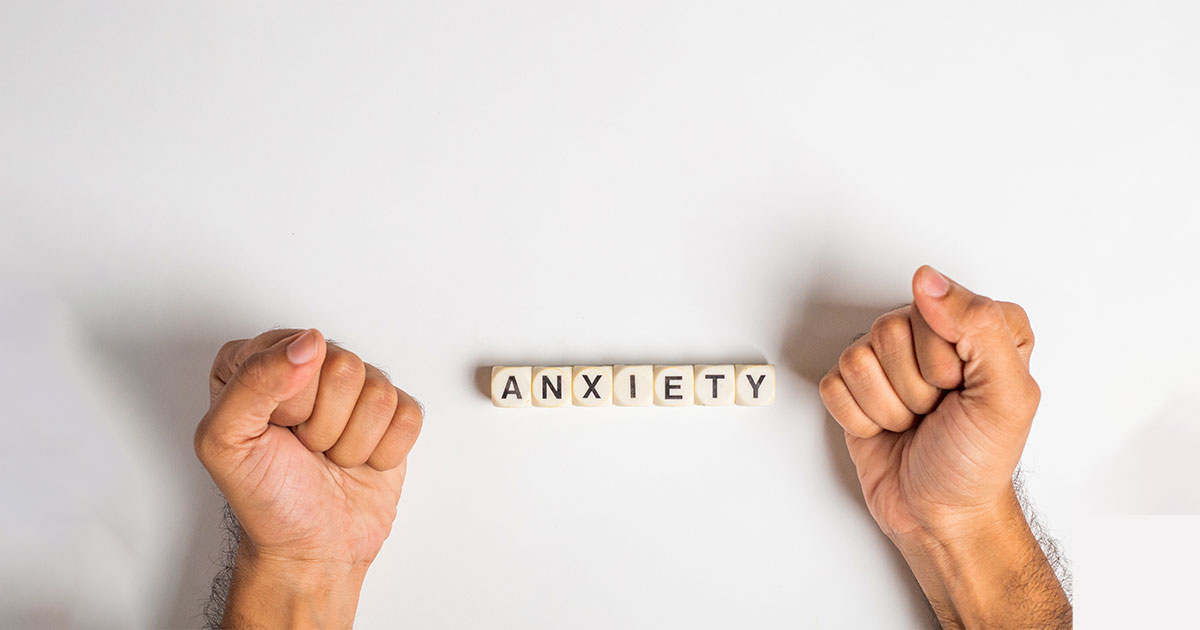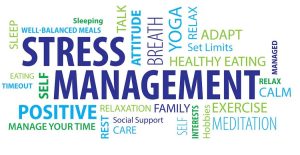Anxiety is a normal response to stress, but excessive or prolonged anxiety can harm your life and mental health. In today’s hectic world, anxiety is one of the most common mental health problems for people of all ages. Many things can trigger anxiety, such as constantly meeting deadlines or feeling pressured by friends. The good news is that anxiety can be effectively managed. To create a foundation of peace and balance, you must continually work on yourself, understand yourself, and use appropriate coping techniques. This article explores research-based anxiety management methods that can help you naturally maintain your mental health. Whether you suffer from mild anxiety or persistent worry, these methods can help you regain control of your emotions and achieve a healthier, calmer state of mind.
Understanding Anxiety
Anxiety is more than just “nervousness” or “stress.” It’s a complex condition that affects your emotions, thinking, and physical health. It often manifests as racing thoughts, a rapid heartbeat, sweating, trembling, or difficulty concentrating. Anxiety is a normal part of life, but if it persists for extended periods, it can lead to fatigue, insomnia, and even depression. The first step to managing anxiety is identifying its underlying causes. Genetics, environmental stressors, and personality traits can all influence how anxiety manifests in a person. If we view anxiety as a normal emotional signal rather than a sign of weakness, we can respond with kindness instead of judgment. This will help us cope better.
The Power of Mindfulness and Meditation
Mindfulness and meditation have been shown to significantly alleviate anxiety symptoms. They help you live in the present moment, instead of worrying about the future or feeling bad about the past. Regular meditation teaches your mind to view thoughts with an open mind, leading to a sense of peace and emotional stability. Just 10 to 15 minutes of mindfulness practice per day can significantly improve your mood and focus. You can start with breathing exercises, guided visualization, or mindful walking. Over time, mindfulness becomes a lifestyle, helping you stay calm in stressful situations instead of acting impulsively.
Positive Thinking and Cognitive Reframing
Our feelings and behaviors are shaped by our thoughts. Cognitive restructuring, a principle from cognitive behavioral therapy (CBT), involves identifying and challenging erroneous or harmful thought patterns. When you start noticing negative thoughts, such as “I’m never good enough,” you can replace them with more balanced and realistic thoughts, such as “I’m doing my best, and that’s enough.” This shift in mindset can help you overcome anxiety and feel stronger. You can shift your perspective over time by making it a habit to say kind words to yourself and express gratitude. Writing down your thoughts or affirmations daily can also help you maintain a more positive and hopeful mindset, which is crucial for long-term emotional stability and mental health.
Create a Supportive Environment
The people and situations around us have a huge impact on how we feel. A welcoming environment fosters connection, understanding, and a sense of well-being. Sharing your feelings with a trusted friend or family member can help you de-stress and gain a different perspective. If you struggle to connect in person, joining an online community focused on mental health or a local support group can also be helpful. Creating a calming physical space—one that is organized, uncluttered, and comfortable—can also help clear your mind. Plants, soft lighting, and soothing scents like lavender can help you relax. Surrounding yourself with positive people and things, both emotionally and physically, can really help you manage anxiety.
Setting Boundaries and Managing Stress
Many people struggle with anxiety because they take on too much or can’t say no. Setting appropriate boundaries can save your mental energy and prevent depression. Know your limitations, speak up powerfully, and prioritize your health. Part of managing stress is understanding what you can and can’t control. Managing your time well, taking regular breaks, and using relaxation techniques like deep breathing or yoga can help prevent stress from overwhelming you. Putting yourself first isn’t selfish; maintaining clarity and balance in your life is crucial.
The Role of Professional Help
While lifestyle changes and mindfulness can be helpful, sometimes you need professional psychotherapy to alleviate deep-seated anxiety. Therapists, counselors, and psychologists are trained to help people manage their emotions and develop specific treatment plans. Cognitive behavioral therapy (CBT), exposure therapy, and Acceptance and Commitment Therapy (ACT) are all effective methods for relieving anxiety. Sometimes your doctor may prescribe medication to alleviate symptoms while you work on finding an effective long-term treatment. Seeking help is a sign of strength, not weakness. Professionals can help you identify the underlying causes of your problems, teach you how to cope with them, and empower you to live a more stable and joyful life.
Building Daily Habits for Lasting Calm
Managing anxiety doesn’t mean eliminating all stress; it means learning to live peacefully with it. Incorporate simple habits into your daily life to stay calm and balanced. Practice deep breathing or gratitude exercises after waking up. Take short breaks during the day to stretch, breathe, or take a walk. Before bed, turn off all electronic devices and develop a calming nighttime ritual. These regular, mindful actions will gradually build resilience and clarity over time. When you approach anxiety management as a daily habit rather than a one-time fix, you can achieve lasting peace and better mental health.
Conclusion
Anxiety is a common problem for many people, but it doesn’t have to dominate your life. You can take care of your mental health and manage anxiety by being mindful of your thoughts, living a balanced life, maintaining supportive relationships, and seeking professional help when needed. Self-care, self-kindness, and a desire for growth are all crucial components of true mental health. Every small step you take to understand and manage anxiety brings you closer to a calmer, more confident you. Remember that peace of mind isn’t something you can achieve; it’s a process of self-discovery, healing, and growth.
FAQs
1. What are the best strategies for quick anxiety relief?
Deep breathing, grounding techniques, and short mindfulness exercises can all help you feel better immediately. When you breathe slowly and deeply, it signals your body to relax and reduces your stress levels.
2. Can food change your anxiety levels?
Yes. Brain-healthy foods, such as leafy greens, salmon, nuts, and healthy grains, can help alleviate anxiety symptoms. Excessive coffee or sugar consumption can worsen anxiety symptoms.
3. How does exercise help relieve anxiety?
Exercise makes you feel better by releasing endorphins, improving sleep, and lowering stress hormones. All of this helps regulate your mood and lower your anxiety levels. Even a simple walk can make a big difference.
4. When should you seek professional help for anxiety?
If anxiety is interfering with your work, relationships, or daily life, or if your symptoms persist despite self-help attempts, you should definitely seek professional help.
5. Is it possible to eliminate anxiety?
Anxiety may not disappear completely, but treatment, lifestyle changes, and coping strategies can help people lead calmer and more fulfilling lives.



